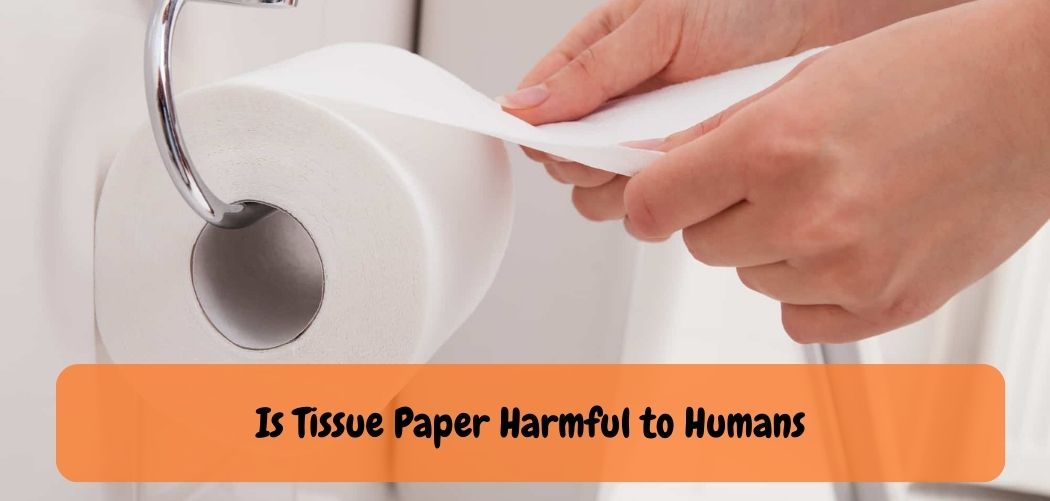Tissue paper is a ubiquitous product found in households, offices, and public spaces, often used for various purposes such as wiping surfaces, cleaning, or personal hygiene. While it may seem harmless and convenient, there are concerns about whether tissue paper can be harmful to humans.
In this article, we will delve into the potential risks associated with tissue paper usage and examine the factors that determine its safety. By exploring the composition of tissue paper, its manufacturing process, and possible health implications,
We aim to provide a comprehensive understanding of whether tissue paper poses any harm to human health. Whether you frequently use tissue paper or are simply curious about its potential impact, it’s essential to be well-informed to make informed decisions about the products we encounter in our daily lives.
The Tissue Paper Harmful to Humans
Tissue paper is a commonly used product in our daily lives, serving various purposes such as personal hygiene, cleaning, and wiping surfaces. However, concerns have been raised about the potential harm tissue paper may pose to human health.
In this informative guide, we will explore the factors that determine the safety of tissue paper usage, examine its composition and manufacturing processes, and discuss potential health implications. By understanding the potential risks associated with tissue paper, you can make informed decisions about its usage and prioritize your well-being.
1. Composition of Tissue Paper:
Tissue paper is typically made from wood pulp, recycled paper fibers, or a combination of both. The composition may vary depending on the intended use of the tissue paper, such as facial tissue or toilet paper. Generally, tissue paper is designed to be soft, absorbent, and lightweight. It is important to note that tissue paper should be free from any harmful additives or chemicals that could pose health risks.
2. Manufacturing Processes:
The manufacturing processes involved in producing tissue paper can impact its safety. Reputable manufacturers follow strict quality control measures to ensure the tissue paper is safe for consumer use. These measures may include proper pulp processing, bleaching methods, and adherence to regulatory standards. However, it’s essential to be cautious of tissue paper from unknown or unregulated sources, as they may not adhere to the same safety protocols.
3. Potential Health Implications:
When used as intended, tissue paper is generally considered safe for most individuals. However, there are a few considerations to keep in mind:a. Chemical Additives: Some tissue paper products may contain fragrances, lotions, or other chemical additives. While these additives can enhance softness or scent, they may also cause skin irritation or allergic reactions in sensitive individuals. It’s advisable to opt for fragrance-free and hypoallergenic tissue paper to minimize the risk of adverse reactions.
b. Recycled Tissue Paper: Tissue paper made from recycled fibers can be environmentally friendly, but it’s important to ensure it has undergone proper processing and meets regulatory standards. Recycled tissue paper should be free from contaminants and toxins that could pose health risks.c. Specialty Tissue Paper: Specialty tissue paper, such as those with antibacterial properties or added moisturizers, may offer specific benefits. However, it’s essential to review the ingredients and consult with healthcare professionals if you have any concerns or specific sensitivities.
4. ndividual Sensitivities and Allergies:
Individual sensitivities and allergies can vary significantly. Some people may be more susceptible to skin irritation or allergic reactions when using tissue paper. If you experience any discomfort, itching, or redness after using tissue paper, it’s advisable to discontinue use and consult with a healthcare professional for guidance.
5. Responsible Usage and Hygiene:
To minimize potential risks associated with tissue paper usage, it’s important to practice responsible usage and proper hygiene:a. Wash Hands: After using tissue paper, especially for personal hygiene purposes, it’s crucial to wash your hands thoroughly to maintain cleanliness and prevent the spread of germs.b. Store Properly: Store tissue paper in a clean and dry environment, away from direct sunlight and moisture, to prevent the growth of bacteria or mold.c. Follow Instructions: Read and follow the instructions provided by the manufacturer to ensure proper usage of tissue paper.
Why We Must Avoid Using Tissue Paper?

Tissue paper has become a common household item, used for everything from wiping down surfaces and removing make-up to cleaning up spills. However, this seemingly harmless product can have serious environmental consequences if not managed responsibly. Tissue paper is usu made from trees or recycle fibers, both of which require energ and water for production.
In addition, most tissue papers are bleache with chlorine dioxide during the manufacturing process releasing toxic pollutants into our air and water sources. Furthermore, tissue paper takes longer to decompose than other types of waste such as cardboard or plastic packaging due to its high absorbency rate and pulp content. Therefore it’s important that we use tissues sparingly in order to minimize our environmental impact.
Reusable cloth options should considered wherever possible instea of single-use tissues; these can wash regularly so they are hygienic while being more sustainable over time. If you must use tissue paper then look out for products certified by the Forest Stewardship Council (FSC); this means that your purchase supports responsible forest management practices around the world including replanting efforts after harvesting timber resources sustainably. By making better choices when buying tissue products we can help reduce deforestation rates thereby preserving vital ecosystems across the globe!
Also Read: What is the Best Toilet Paper to Avoid Itching?
Is Tissue Paper Useful Or Harmful?

Tissue paper is a popular and versatile product that has been use for many purposes over the years. It can use to keep items clean, absorb moisture, cushion fragile items during shipping, as well as for creative arts and crafts projects. But is it really useful or harmful?
The truth is that tissue paper can both useful and harmful depending on how it’s use. For example, if you use tissue paper in your home to help clean up spills or protect delicate objects from damage while storing them away, then it’s probably beneficial. However, if you use too much of the tissue paper during shipping or packaging of fragile items, then this could lead to additional waste and an increased environmental footprint due to its non-biodegradable nature.
Overall though, when used correctly in moderation with consideration for the environment in mind – such as opting for recycled materials where possible – tissue paper can certainly be a helpful tool at home or work without causing any undue harm to our planet.
What is Harmful for Tissue Paper?

Tissue paper is an essential product in our everyday lives. However, it can be harmful to us if we’re not careful. The main danger of tissue paper comes from the chemicals used to make it soft and absorbent.
These chemicals can cause irritation to the skin or respiratory system when inhaled and some may even be toxic. Another potential hazar is that if too much of the paper is flushe down a toilet, it could cause blockages in plumbing systems. Furthermore, many types of tissue papers are bleache with chlorine-based compounds which produce dioxins – known carcinogens – during production and disposal processes.
Finally, some tissues contain plastics such as polyethylene, which are difficult for nature to break down and contribute significantly to landfills around the world; this has a negative effect on our environment. It’s important that we use tissue paper responsibly so that its effects don’t become potentially dangerous for ourselves or our planet’s ecosystems!
What Happens If You Swallow A Tissue?
Conclusion
Understanding the potential risks and implications of tissue paper usage is crucial in maintaining our health and well-being. While tissue paper is generally considere safe for most individuals, it’s essential to aware of certain factors that can impact its safety. The composition of tissue paper, the manufacturing processes involved, and potential contaminants can all play a role in determining its impact on human health.
It’s important to note that tissue paper intended for personal hygiene purposes, such as facial tissue or toilet paper, typically undergoes stringent quality control measures to ensure its safety. However, when using tissue paper for other purposes like cleaning or wiping surfaces, it’s advisable to consider the potential presence of chemicals or additives that could pose risks.
To make informe decisions, it’s helpful to seek tissue paper products that are manufacture by reputable brands, adhere to regulatory standards, and have undergone rigorous testing. Additionally, practicing proper hygiene, such as washing hands after using tissue paper and avoiding prolonged exposure to chemicals or irritants, can further mitigate any potential risks.

